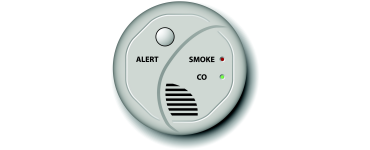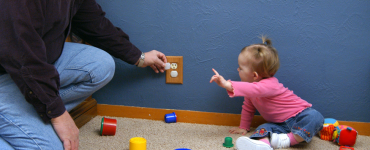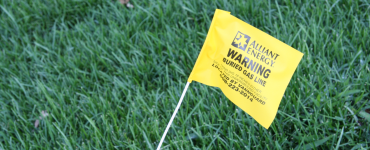Ground fault circuit interrupters (GFCI)
Electrical outlets near water sources like sinks and laundry appliances, as well as all garage and outdoor outlets, should have a ground fault interrupter (GFCI). These are the outlets with the "test" and "reset" buttons. If every home had GFCIs, deaths from electrocution in and around the home could be reduced by 50%.
A GFCI works by monitoring the flow of electricity through the outlet's circuit. If there is any variation in the current, the GFCI will automatically cut off the flow of electricity, preventing injury.
There are three different types of ground fault circuit interrupters:
- Whole-house devices for circuit panels that protect against external power surges. Only a certified electrician should install these.
- Receptacle-based protectors that replace standard wall outlets. You can install these yourself by carefully following manufacturer's instructions.
- Portable units that simply plug into a wall outlet. Any homeowner can use this type.
GFCIs should be tested every month. Plug a lamp or radio into a GFCI outlet and turn it on. Push the "test" button on the outlet; the lamp or radio should turn off immediately. If it doesn't, the GFCI has been wired improperly, and should be fixed by a certified electrician.
GFCIs are inexpensive and provide the best protection against electrical hazards, and we strongly recommend using them in your home. But remember, even the best GFCI can't offer 100 percent protection, so never forget other electrical safety rules.
More from this category
Garage door app
A garage door app will alert you when the door is open and allow you to open and close the door from your smart phone.
Portable generators & space heaters
Home security systems
Many homeowners are investing in home security systems to deter criminals, provide home protection and deliver peace of mind.
Natural gas leaks
Although leaks from natural gas lines are rare, it’s important to know the warning signs.
Gas appliance safety
Keep these safety guidelines in mind when using gas-consuming products such as stoves, clothes dryers, water heaters and furnaces.
Carbon monoxide - the invisible enemy
Find out what causes deadly carbon monoxide poisoning - and how to prevent and detect it.
Electrical safety and childproofing
Make sure your electrical appliances, tools and outlets are safe, and be careful around electrical equipment outdoors.
Staying safe around buried gas pipelines
If you have buried natural gas lines on your property, make sure you know how to locate and maintain them.









